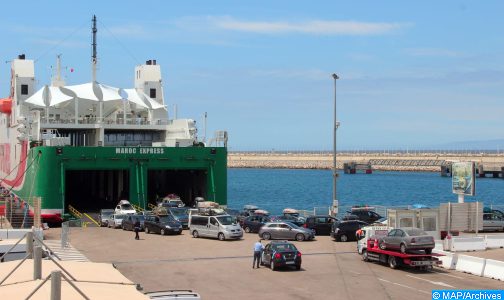For nearly twenty-five years, anyone taking the ferry from Tangier to Tarifa could expect the same exhausting ordeal: endless lines, utter confusion, frayed nerves at the police booths, and near-chaos at customs. What should’ve been a straightforward crossing often turned into a nerve-wracking test of patience, a stressful ritual many came to dread—but tolerated as part of the process.
Then came a morning that defied every expectation. At the Tangier port, what unfolded felt almost surreal. Gone were the noisy crowds and the disorderly scramble. Instead, vehicles moved forward in a calm, orderly procession. Passengers stayed inside their cars while officers conducted passport checks from sleek kiosks, quietly and efficiently. No one had to step out, no one raised their voice, and everything moved with a surprising ease.
At customs, the sense of calm continued. Agents greeted travelers politely, inspections were quick, and paperwork was handled seamlessly. Within about twenty minutes, all formalities were done. The only thing left was to wait peacefully for the ferry to start boarding.
For those who had braved the chaos of previous years, the transformation was almost hard to believe. The structure, the discipline, the sheer efficiency—it was all there. Enough to provoke amused disbelief and even comparisons to major global airports. Some whispered, half-jokingly, that even JFK in New York doesn’t always run this smoothly.
That morning in Tangier, many travelers found themselves feeling something they hadn’t before at the port: gratitude. Gratitude for a Moroccan administration that, this time, had pulled off the unexpected—delivering a process that was smooth, respectful, and refreshingly organized.





